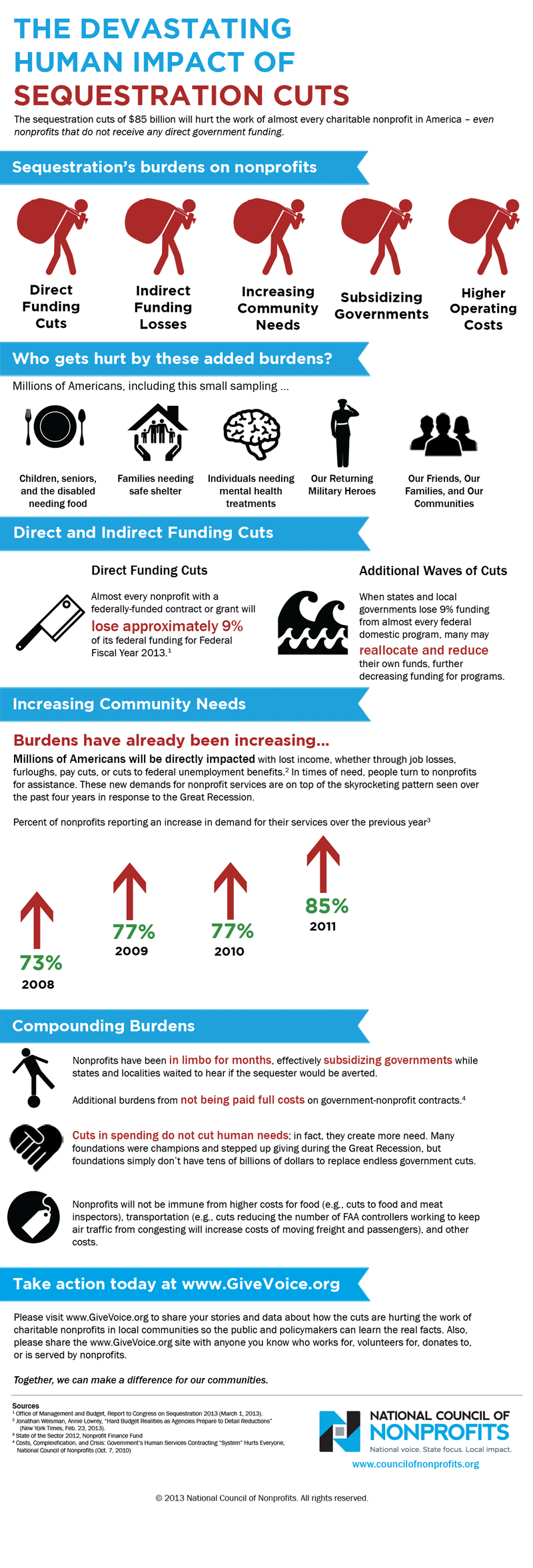
We all feel the rush of time around now, the holidays racing towards us followed by the ringing in of another new year. Before you know it, you’re wondering where the time went… for most 501(c)(3) organizations, November is the deadline month to exercise their state unemployment tax exemption for 2018. That means you need to act now.
Unlike for-profit organizations, 501(c)(3) nonprofits have the unique opportunity – as allowed by Federal law – to opt-out of the state unemployment tax system and instead only reimburse the state, dollar-for-dollar, if and when they have an actual unemployment claim. It can be a savings opportunity for many nonprofits who have lower claims than what they pay in state unemployment taxes—which are often driven up by for-profit organizations and other companies that go out of business, as well as state fund deficits and improper payments made in error.
The Unemployment Services Trust helps nonprofits to better manage their cash flow through proper claims administration and safety reserve building. With access to e-Filing capabilities, state-specific claims advice and a plethora of on-demand HR services, UST participants are able to streamline operations and reduce back-office paperwork burdens.
Last year alone, UST helped program participants save $27.8 million in unemployment claims costs. That’s millions of dollars more for the nonprofit sector and the communities they serve.
More than 2,200 of your nonprofit peers are already exercising their unique tax alternative with UST. Rather than overpay into the State unemployment fund – effectively subsidizing for-profit companies – wouldn’t it be more true to your mission to allocate that wasted overhead to your programs and services?
Submit your FREE Cost Analysis Formno later than November 15th in order to meet the state deadline for 2018 enrollment – which for most states is December 1st. Unfortunately, if a nonprofit misses the state deadline, they have to wait until the following year to exercise their tax exemption and join the UST program.

Nonprofits who rely on state and other government funding should prepare for a bumpy road ahead in the next couple years says a new report produced by independent philanthropy consulting firm “Changing Our World, Inc.” Although the economy is seeing a shift toward the positive, state tax revenue – and therefore funding for many nonprofits – is nowhere near stable. And while the number of nonprofits has been steadily rising over the past 15 years, charitable giving has dipped significantly and would need an unprecedented rally to make up for the government funding shortfall.
Since World War II, the average recession in America had lasted 10 months. Until Now.”
Unemployment alone has created a crisis in many states. In fact, 44 “crisis states” have significantly reduced spending and are expected to cut spending even more (by $38.5 million) in social services, education and Medicaid says the report. Despite $1.5 trillion of American household wealth lost in just the first three months of the recession, philanthropy on the other hand, has been making modest gains and is expected to slowly trend upward. But the dollars are spread thinner as the number of nonprofits increases and the demand for services explodes. As the Chronicle of Philanthropy put it: “To help nonprofits cover cuts in those services, households in the hardest-hit states would have to step up their giving by 30 percent in 2011 and 60 percent in 2012—an increase the report says would be ‘historically unprecedented.’”
So what’s a nonprofit to do?
The report concludes that a multi-faceted strategy is needed for every nonprofit. Waiting on philanthropy or government funding to recover won’t work. “Philanthropy will be an important, indeed critical piece of that strategy, in part because philanthropy is often flexible and can fill in gaps not financeable through other means. However, the sheer weight of the burden will require that multiple revenue pathways be opened as well as that every managerial option for efficiency be considered.”
For nonprofits looking for a guide to this multi-pronged approach, we gleaned these tips from the report:
• Efficiency – Reach out to unemployed workers to become volunteers, possibly with a stipend. You’ll not only give them a step in the right direction but you’ll receive valuable man-hours.
• Collaboration – Reducing overhead costs is possible through a number of collaborative efforts like merging of back offices, joint purchase of property, combination of nonprofits with similar programs into a single service network, etc.
• Messaging – When asking for donations, emphasize progress instead of crisis. Talk about all the good the organization is doing in the face of the economic crisis, not how it’s struggling.
• Financial Expertise – Learn more about managing cash flow and accounts receivable so you can weather late payments and financial dips. Become your own expert on economic trends. Also think about adding people to the board with financial expertise or government experience.
• Don’t Rely on One Source – No more than 60% of any program’s budget should come from government money.
• Maintain a Reserve – This fund should be triggered only by the Board or the Finance Committee, and saved for lean times.

Robin- UST AP Specialist/Claims Analyst
In 1976, Robin’s parents did the unthinkable. They drove across the U.S.—from Southern California to Montreal, Canada—with 3 small children in tow.
For days they stopped at historic landmarks across the East Coast letting their children experience the excitement and historic fervor of some of the most famous historic landmarks in the U.S., including the Liberty Bell, the Statue of Liberty and many others in Washington D.C., before attending the Summer Olympics in Montreal.
Still her favorite childhood memory, it’s possible that this early exposure to the many different cultures of the U.S. helped ground her in her hometown of Carpinteria—where the UST administrative office is located—and led her to UST where she enjoys working with state agencies on behalf of our members.
“I knew UST would be a perfect fit for me,” Robin says, “the challenges of working with state agencies on behalf of nonprofits and providing the best customer service that I can is something that I love doing every day.” And, she sheepishly admits, “I loved the idea of working in my own community. I’ve lived here all of my life, but I’ve never actually worked in town.”
But with only 3 stoplights, and a downtown area that is only about four blocks square, it’s not surprising that Robin had never before worked in town—even if her Grandmother’s portrait does hang in the town’s historic museum.
Have questions for Robin? Want to swap Olympic memories with her? Tweet us @USTTrust!

When looking to apply for future grants, GrantAdvisor can serve as a beneficial nonprofit resource for your organization. GrantAdvisor is an online service that allows for open communication between nonprofits and grantmakers by collecting authentic, real-time reviews and comments on the experiences grantseekers’ have when working with funders. Created to encourage a more productive philanthropy amongst grantseekers and foundations.
This service is designed to grant applicants, grantees, and others to share their first-hand experiences working with funders and for funders to respond on the record. With all feedback collected and shared anonymously, GrandAdvisor hopes this will encourage grantees to be transparent. Once 5 reviews have been collected for a particular funder, the data will be shared publicly. This provides an opportunity for the foundation to respond to comments and to see how they are perceived in their field—not only as grantmakers but also as leaders and influencers. With this service, GrandAdvisor hopes to improve the relationships between grantmakers and grantees while strengthening the fields the funders work in.
GrantAdvisor is an initiative brought together by its’ project partners, Jan Masaoka, CEO of California Association of Nonprofits, Perla Ni, CEO of GreatNonprofits and John Pratt, Executive Director of Minnesota Council of Nonprofits. “One of the most important differences between nonprofit organizations, businesses and governments is the way they receive their funds,” said John Pratt. “The goal of GrantAdvisor.org is to elevate the reliability and depth of this external grant information through crowd sourcing, pattern recognition and public peer exchange to make the whole process clearer and more transparent.”
With their launch in June 2017, GrantAdvisor is currently available in California and Minnesota—new locations and partnerships are scheduled to be announced this year. We look forward to seeing wonderful things happen for this up and coming organization! To learn more about GrantAdvisor visit https://grantadvisor.org/

The end of our mnemonic prioritizing what you want most in your benefits and salary package at a new nonprofit is often the hardest. It requires that you legitimately sit down and determine which benefits are the most important to you and where you have the most wiggle room.
For instance, the title of your position more important than the amount of money you make a year? Is an extra $3,000 or $5,000 of salary a make or break issue for a position that you would love to have?
Prioritize
If you get too hung up on a single point in the negotiation process, it can slow everything down and create issues that may haunt you later down the line.
And remember, if you do anything out of line in the negotiation, or if anything in your package is seen as excessive, controversial, or deemed “special interest” there may be problems down the line when it comes to managing your team and working with other stakeholders throughout the organization. So, if you don’t think something in your package is worth fighting for long after negotiations are over, consider leaving it out.
What other tips do you have for negotiating a nonprofit compensation package? Are there things that you can’t live without? Tell us about them on Facebook, Twitter, or LinkedIn!

Because, as you know sometimes jobs come along that are simply too good to turn down, so in these cases it’s even more important that you recognize the difference between what you need, what you want and where the difference is.
Focus on the future in your negotiations to make sure you don’t get stuck in your financial past.
Focus on the Future
If you can, evaluate the non-monetary points of the compensation package to determine if they help fill the gap. Maybe you are able to take a leave of absence every year, or you can create flexible working hours that allow you to work during the times that make the most sense for your life. Since the monetary portions of any compensation package are often the most stringently reviewed—and the least likely to pass muster—look at the amount of value that is gained from other components of the proposed compensation package.
If even this doesn’t pass your compensation test, consider whether you (and the organization) would be interested in revisiting the package a few months down the line when you have shown your worth. It’s possible that the decision makers may be more inclined to offer you better perks if you have proven yourself a valuable member of their organizational team.
What other tips do you have for negotiating a nonprofit compensation package? Are there special things that you don’t think you’d be able live without in the future? Tell us about them on Facebook, Twitter, or LinkedIn!

A sunset Megan captured outside her house last week! How gorgeous is that?!
After starting out with UST’s Accounts Payable department, Megan C. was excited to be offered a position as a Customer Service Representative in February. “I was excited about helping nonprofits potentially save money on their operating costs after having volunteered with nonprofits in the past,” she explains.
“I worked with MDA and helped with their Fill the Boot and Winter Wine Down campaigns. And although I still haven’t had the chance, I’ve wanted to work with the Make-A-Wish foundation since they helped my cousin, who was battling an unknown cancer, ”* she says.
“My cousin was 19 when he passed away and really into gaming, so the Make-A-Wish foundation redid his room and decked it out with all sorts of entertainment and gaming systems that he was then able to play. It made a big difference to him.”
Growing up with a large family, Megan treasures her memories of summers on Cape Cod and at the beach, Thanksgiving with her whole family present, and her grandparents’ stories of growing up in Greece. “Being half Greek, and hearing their stories throughout my own childhood, my grandparents have easily convinced me that I want to visit and experience the culture first hand.”
Have questions for Megan? Tweet her @USTTrust with the hashtag #MeetUSTMondays!
*About 5 percent of those diagnosed with cancer have a previously unrecognized form.

With a possible government shutdown still looming on the horizon, many organizations who receive government funding are probably reviewing their plans for staffing during this period. And as uncertainty continues, it’s important to ensure you are fully aware of the legal implications of any actions you take.
Organizations have a number of options depending on their situation though. Affected organizations may determine that they cannot afford to pay their employees during the shutdown so they may chose to furlough staff, reduce pay, or require employees to take leave (using accrued, advanced or unpaid leave). They may also send their employees to mandatory training. But what if too many employees of a protected class are effected by decisions? Or if employee’s exempt status is violated when requiring time off?
The experts at Nonprofit HR have put together an information packed white paper that can help make your decision making easier. Download the full white paper here.

In an Effort to Help More Nonprofits Reduce Overhead Costs and Lower Their Unemployment Tax Rate, UST Support Now Provides Workforce Solutions Specifically Tailored for Nonprofits in the State Unempl oyment Tax System.
Santa Barbara, CA (November 7, 2017) – The Unemployment Services Trust (UST), a program dedicated to helping nonprofits ensure compliance and protect assets, today announces the revision of a standing program, UST Support, which will now cater to both tax-rated and direct reimbursing nonprofits. UST Support provides cost-savings tools to nonprofits that are looking to offload burdensome unemployment claims management processing in order to allocate more time and money to their core missions.
Since 1983, UST has served direct reimbursing nonprofits with the HR resources and unemployment claims management tools they need to keep more money within the nonprofit community. Now, UST Support offers a solution specifically designed to provide tax-rated organizations with valuable benefits to operate efficiently while saving money.
The UST Support program offers exclusive access to the following services:
– Professional Claim Administration
– Professional Representation at Appeal Hearings
– CaseBuilder Online Claims Management
– Live HR Hotline, Online Compliance Library and Training
– Outplacement & Career Transition Services
– Budget Guidance from Certified Actuaries
In addition to these robust resources, UST Support now provides several features designed to help tax-rated employers better manage their unemployment costs. One of these tools includes rate forecasting—an aid used to help with budgeting and cash flow management. Plus, our claims administrator’s annual analysis can help you decide whether a voluntary contribution can be used to lower your unemployment tax rate—providing long-term savings for your organization.
“Nothing is more rewarding than hearing how our support has helped nonprofits to better serve their communities and support their missions,” said Donna Groh, Executive Director of UST. “And now, UST Support is giving us the opportunity to assist a whole new group of organizations by providing a solution customized to meet the needs of tax-rated nonprofits.”
501(c)(3) nonprofit employers who are interested in learning if UST Support is the right program for your organization, should submit a free Unemployment Cost Analysis today!

UST maintains a secure site. This means that information we obtain from you in the process of enrolling is protected and cannot be viewed by others. Information about your agency is provided to our various service providers once you enroll in UST for the purpose of providing you with the best possible service. Your information will never be sold or rented to other entities that are not affiliated with UST. Agencies that are actively enrolled in UST are listed for review by other agencies, UST’s sponsors and potential participants, but no information specific to your agency can be reviewed by anyone not affiliated with UST and not otherwise engaged in providing services to you except as required by law or valid legal process.
Your use of this site and the provision of basic information constitute your consent for UST to use the information supplied.
UST may collect generic information about overall website traffic, and use other analytical information and tools to help us improve our website and provide the best possible information and service. As you browse UST’s website, cookies may also be placed on your computer so that we can better understand what information our visitors are most interested in, and to help direct you to other relevant information. These cookies do not collect personal information such as your name, email, postal address or phone number. To opt out of some of these cookies, click here. If you are a Twitter user, and prefer not to have Twitter ad content tailored to you, learn more here.
Further, our website may contain links to other sites. Anytime you connect to another website, their respective privacy policy will apply and UST is not responsible for the privacy practices of others.
This Privacy Policy and the Terms of Use for our site is subject to change.
UST maintains a secure site. This means that information we obtain from you in the process of enrolling is protected and cannot be viewed by others. Information about your agency is provided to our various service providers once you enroll in UST for the purpose of providing you with the best possible service. Your information will never be sold or rented to other entities that are not affiliated with UST. Agencies that are actively enrolled in UST are listed for review by other agencies, UST’s sponsors and potential participants, but no information specific to your agency can be reviewed by anyone not affiliated with UST and not otherwise engaged in providing services to you except as required by law or valid legal process.
Your use of this site and the provision of basic information constitute your consent for UST to use the information supplied.
UST may collect generic information about overall website traffic, and use other analytical information and tools to help us improve our website and provide the best possible information and service. As you browse UST’s website, cookies may also be placed on your computer so that we can better understand what information our visitors are most interested in, and to help direct you to other relevant information. These cookies do not collect personal information such as your name, email, postal address or phone number. To opt out of some of these cookies, click here. If you are a Twitter user, and prefer not to have Twitter ad content tailored to you, learn more here.
Further, our website may contain links to other sites. Anytime you connect to another website, their respective privacy policy will apply and UST is not responsible for the privacy practices of others.
This Privacy Policy and the Terms of Use for our site is subject to change.
According to Doug Holmes, President of UWC – Strategic Services on Unemployment & Workers’ Compensation:
“On February 22, 2012, the President signed P.L. 112-96, The Middle Class Tax Relief and Job Creation Act. This legislation extended and reformed the Federal Emergency Unemployment Compensation (EUC) program for the remainder of 2012, which was subsequently extended through December 2013. This legislation also included landmark reforms to the permanent unemployment program, such as creating new job search requirements for Federal benefits, permitting States to have new flexibility to seek “waivers” to promote pro-work reforms, allowing States to screen and test certain UI applicants for illegal drugs, requiring “reemployment eligibility assessments” (REAs) for the long-term unemployed, and requiring States to recover more prior overpayments of UI benefits. The initial implementation of these 2012 reforms was previously explored during a Human Resources Subcommittee hearing in April 2012.”
“In announcing the hearing, Chairman Reichert said, ‘Fourteen months ago, Republicans and Democrats in the House and the Senate agreed on commonsense reforms to the unemployment insurance system designed to help more Americans return to work sooner. The President signed those policies into law, but the Administration has since been selective in implementing some policies and has created barriers to successfully helping states take action on other policies. This hearing will help us evaluate how the Administration has implemented the 2012 reforms and determine what we can do to help more Americans collect paychecks instead of unemployment checks.’”
UWC provided testimony and advocated in favor of the integrity provisions in the legislation in 2012, many of which were adopted. UWC testimony from the April 25, 2012 hearing in review of implementation can be viewed here.